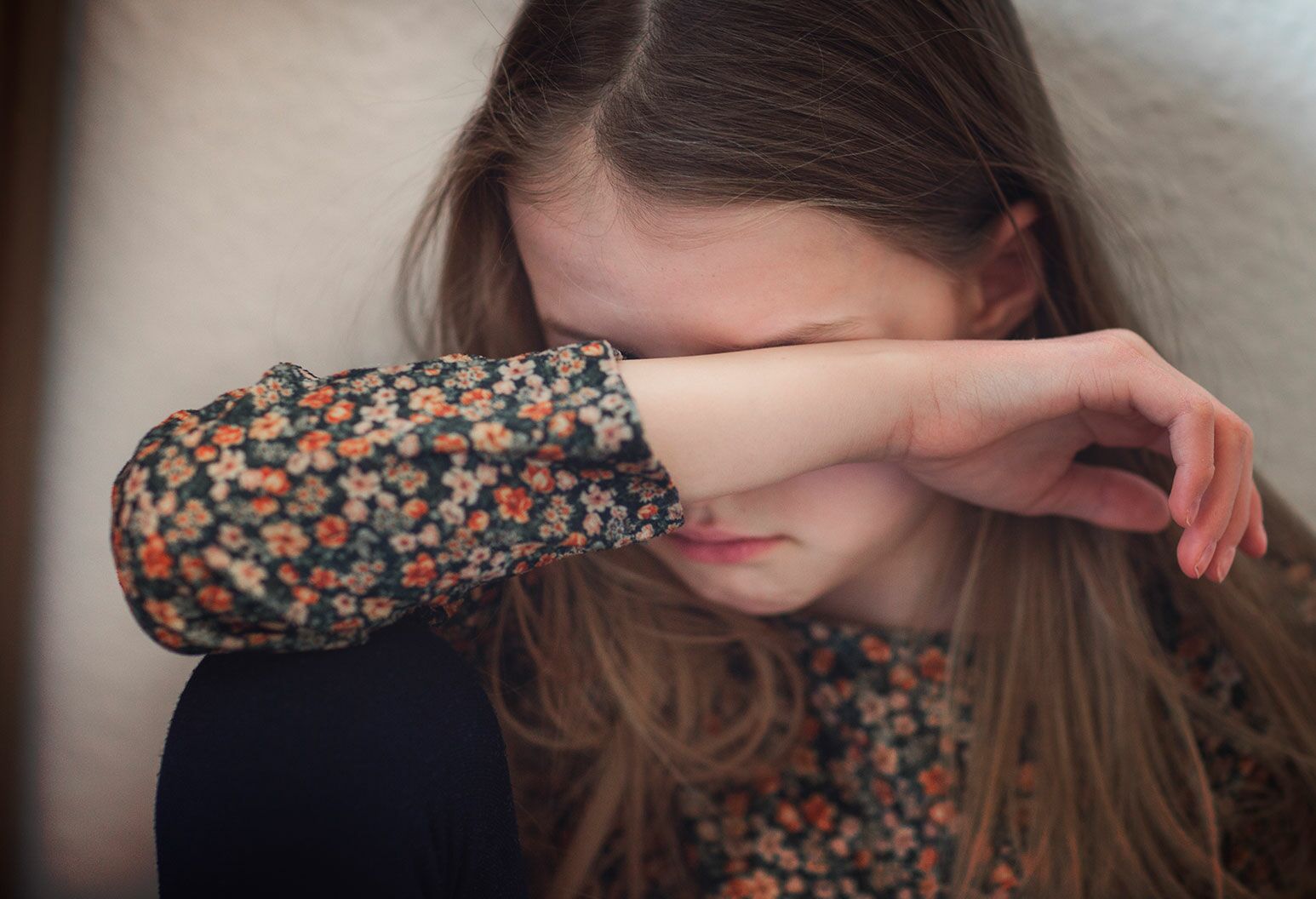parenting
My Ex Doesn't Want To Co-Parent

There's a difference between normal angst and something more serious.
7 min read
Your child doesn’t want to go to school, he is having stomach issues and headaches, stays in most weekends, and even skips parties with friends. What gives? It could be normal childhood angst, or it could be something more serious.
Anxiety disorders affect one in every eight children, according to the Anxiety Disorders Association of America. Unfortunately, many children go undiagnosed for years because anxiety can look like so many other things. “Kids will complain of belly aches, headaches, or difficulty breathing, so they’ll go to the pediatrician or even the emergency room, thinking it may be something else,” says Dr. Victor Fornari, director of the Division of Child and Adolescent Psychiatry at Northwell Health’s Cohen Children’s Medical Center.
The biggest barrier to a proper diagnosis? “Not having the necessary information,” Dr. Fornari says. So arming parents with the proper 411 is essential. With that in mind, here are five things you need to know about anxiety disorders in children.
Certain fears are expected at various ages. Infants are often scared of strangers, many preschoolers dread the dark, and early school-age children may feel dread whenever they get near doctors and dentists. But with experience, these age-appropriate fears lessen and eventually disappear. The child who runs screaming from a clown at 5 years old may dress as a clown for Halloween at age 10.
But for some children, the fear and anxiety can stick around, or get worse. The key is to address these anxious issues so they don’t mushroom into bigger problems. Research has shown that children with untreated anxiety disorders are at higher risk of performing poorly in school, missing out on important social situations, and engaging in substance abuse.
To sort out whether your child’s anxiety is just a passing phase or something more serious, ask yourself the following questions:
Anxiety disorders are a disease, like asthma or diabetes. Just like those complaints won’t go away without treatment, neither will an anxiety disorder.
A number of anxiety disorders can affect children and adolescents. But most often, Dr. Fornari says, it comes in one of three forms:
One less common, but equally debilitating, disorder worth mentioning is obsessive compulsive disorder (OCD), in which a person feels compelled to perform certain rituals and routines to rid themselves of persistent, intrusive worries. These rituals can build and eventually take up a lot of the person’s time and energy. Two to three percent of children meet the criteria for OCD, which is now in its own category.
Anxiety often has a genetic component. “In general, we find that an anxious child comes with anxious parents, grandparents, or siblings,” says Dr. Fornari. But they won’t always have the same disorder. In other words, while your dad may have generalized anxiety, your daughter may have separation anxiety.
However, if anxiety does run in your family, there’s no need to sound the alarm. Many factors come into play in the development of an anxiety disorder. Genetics is one factor, but so is brain chemistry, personality, and life events.
And while parenting style doesn’t cause anxiety, it can reinforce it. This is especially difficult for parents who have issues with anxiety themselves. You know how it feels to be anxious, so your own fears and anxieties may come into play as you parent. If you rush in to comfort your child whenever he shows the tiniest inkling of anxiety, he will never learn how to soothe himself.
As a parent, your natural instinct is to protect your child. Ironically, this may be the very thing that’s keeping your child’s anxiety alive. If you cross the street when you see a dog coming and tell your daughter it’s OK to skip a sleepover because she doesn’t want to be away from home, you are helping your child to avoid situations that create uncomfortable feelings for them, rather than teaching them how to cope with those feelings and manage them.
The way your child is going to overcome anxiety is to persevere through those uncomfortable feelings, whether that’s walking right past the dog or going to the sleepover. Once she sees that her worst fears did not come to fruition and the world didn’t fall apart, the anxiety will subside and be replaced with feelings of accomplishment and self-confidence.
If you’re finding that your child’s anxiety is getting worse, “Cognitive-behavioral therapy, or CBT, is the most effective evidence-based treatment for childhood anxiety disorders,” says Dr. Fornari. The therapy itself can start to help in as few as 12 weeks, and the benefits can last a lifetime. “We often say cognitive behavioral therapy skills are the perfect toolkit to equip a child to handle and cope with stress,” Dr. Fornari says.
CBT teaches the child a different way to react in a given situation. In short, CBT training helps the child:
For severe anxiety disorders, medication may be necessary. Selective serotonin reuptake inhibitors (SSRIs) are approved for the treatment of anxiety disorders in children as young as 6, says Dr. Fornari. Medication is usually used along with therapy, and in fact, a major research study found that kids who were treated with a combination of CBT and medication did much better than those who received either treatment alone, or a placebo.
The Well is Northwell Health’s commitment to the future of health care. In this time of information overabundance, much of which is inaccurate, unhelpful, or even difficult to understand, Northwell Health is on a mission to make a difference as an honest, trusted, and caring partner. The site connects with consumers to provide them with personalized content that reduces their stress, makes them laugh, and ultimately feel more confident and capable on their healthcare journey.